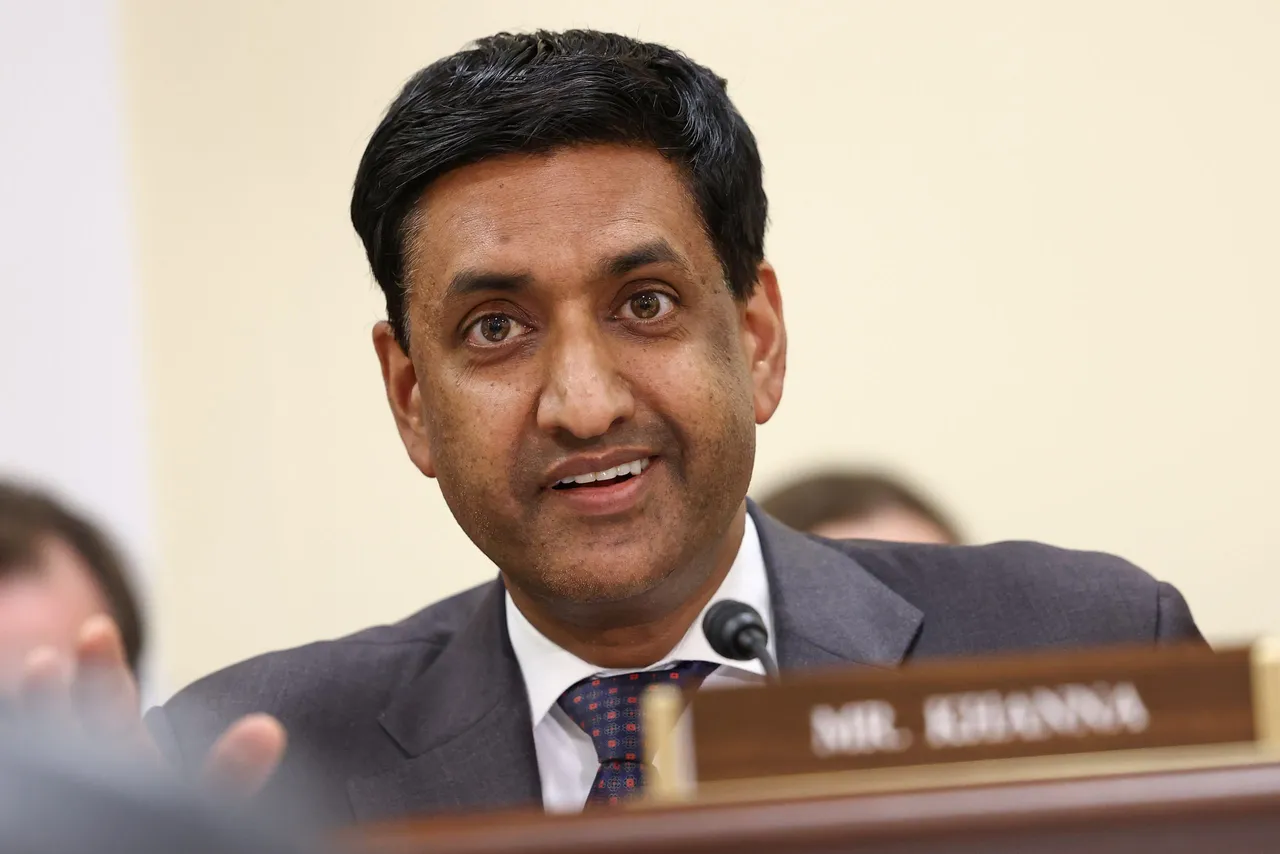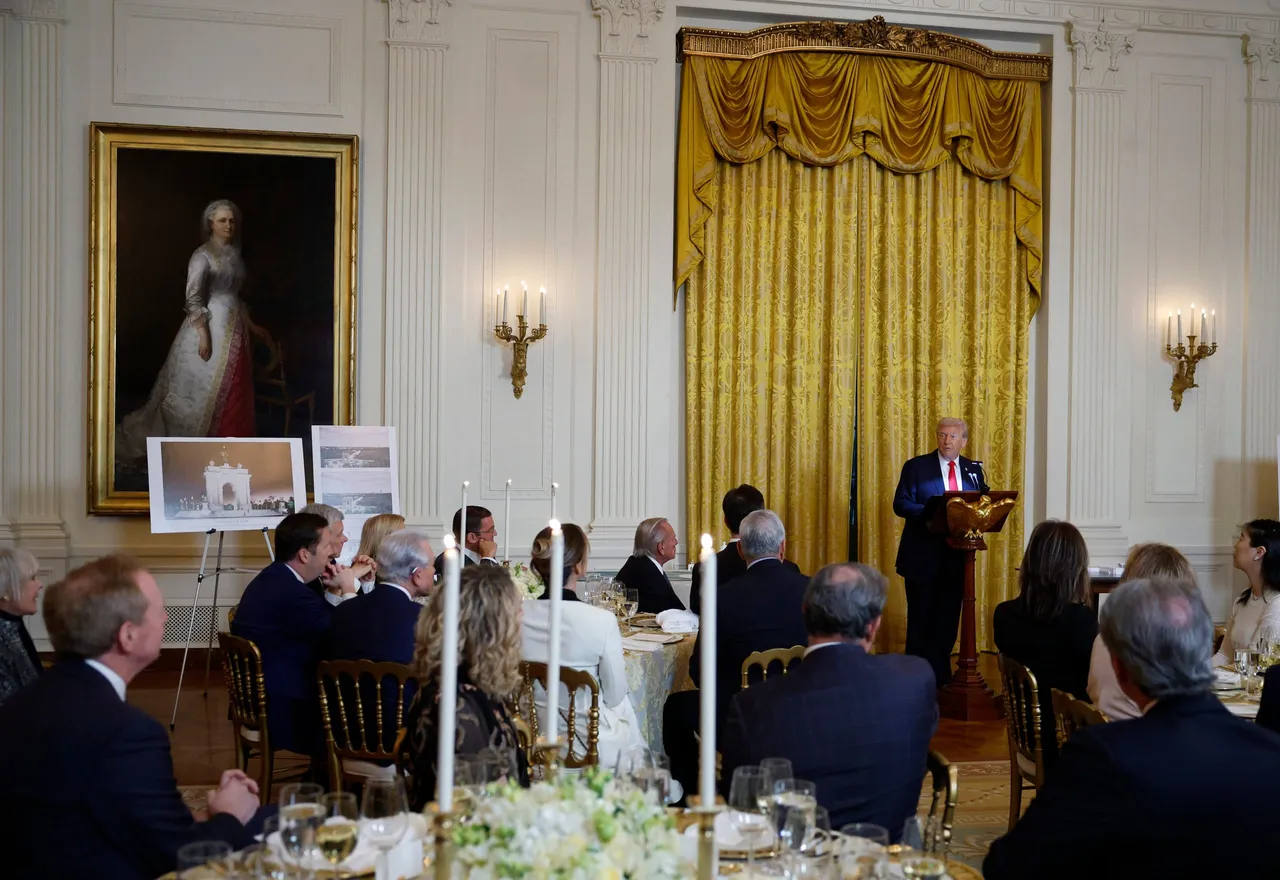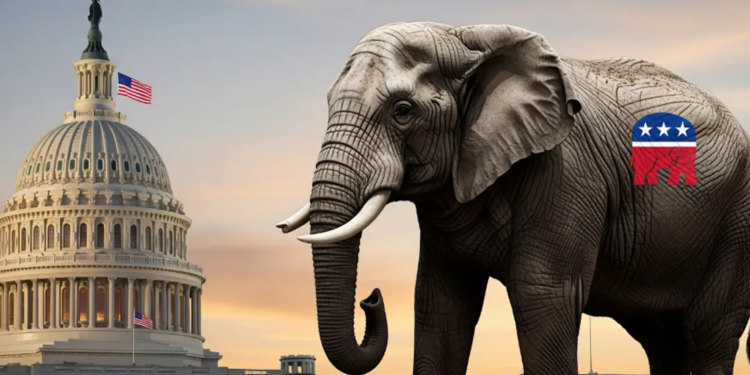This article was adapted from the Daily Caller’s new Substack, State of the Day. Click here to sign up and get exclusive content, the Caller’s full slate of newsletters, hot takes, and informative, long-form pieces direct to your inbox.
It was the rallying cry of 2016, a slogan revitalized by Trump that represented a core pillar of the then-insurgent MAGA movement: “Drain the Swamp.”
This was not the first time the catchy and potent slogan had been used. In fact, it had been used across the political spectrum for over a century, from early 1900s socialists to even Nancy Pelosi, who used it in 2006 after she became speaker and ended the GOP’s decade-long hold on the House. And, like “Make America Great Again,” Trump borrowed “Drain the Swamp” from former President Ronald Reagan, who was fond of the phrase throughout his presidency.
But, in the second Trump administration, its use has petered out. Ironically enough, the last time “Drain the Swamp” really made headlines was back in April, when a Democrat introduced legislation to ban lobbyists’ gifts and enact stricter rules on Washington’s infamous “revolving doors.” It was the first time, it seemed, that a Democrat since the early 2000s had actively tried to co-opt it against the Republican Party. Which leads one to ask: even though Republicans have been attacking the Deep State (which is a similar but still different beast than the whole of The Swamp), have they completely given up on draining our capital of nefarious actors?
Deep State vs. The Swamp
There is indeed a difference between the Deep State and the Swamp. Roughly, the Deep State encompasses all of the federal bureaucracies, the alphabet agencies formed during the FDR administration and throughout the 20th century, the intelligence agencies, the Department of Homeland Security, the Pentagon, the Federal Reserve, and all the unelected or politically appointed bureaucrats and officials.
The Swamp, on the other hand, includes the vast, private sector network that feeds off the Deep State and colludes with the federal government, ranging from Congressional lawmakers to regulators in the Treasury Department. In other words, the whole swath of corporate lobbyists, defense contractors, business interest groups, think tanks, political consultants, etc., who influence elected officials, Deep State bureaucrats, and White House officials, to enrich themselves, usually to the detriment of the American people.

Protesters file through the K Street lobbying district in an Occupy DC demonstration on Saturday night January 28, 2012. The protest sought to disrupt the 99th meeting of the Alfalfa Club, a gala social reunion of Washington’s top movers and shakers, attended by President Barack Obama. AFP PHOTO / Robert MacPherson (Photo credit should read Robert MacPherson/AFP via Getty Images)
As we have seen with Trump 2.0, the Deep State can be pared away. Civil servants can be fired. Agencies can be shuttered. (Not without lawsuits, of course.) But, with the so-called “private sector,” the Swamp at times is a more powerful beast than the actual government, and cannot be so easily influenced by actions from, say, the executive branch or even Congress. In some instances in Trump’s second term, as we will see, it is actually the Swamp that is dictating policy, not the other way around.
Once Again, It’s A Democrat Talking Point
In April, Democratic Rep. Ro Khanna introduced the “Drain the Swamp Act” as a response to Trump removing ethics rules put in place by former President Joe Biden. Khanna’s bill has no shot of ever passing, as long as Republicans control the House and Senate, but it would have banned political appointees from accepting gifts from registered lobbyists and the infamous “golden parachute” payments from former employees, as well as a mandatory two-year “cooling off” period for officials entering and leaving government. (RELATED: Can Democrats Run On Patriotism? We Asked Rep. Ro Khanna)
“He campaigned on draining the Swamp, and yet he gets in there and he says, ‘no, lobbyists can give gifts to White House officials,’” Khanna said of Trump. “What I’m saying is that we need to ban lobbyists from giving gifts to White House officials, not just this administration, but for all administrations going forward.”

WASHINGTON, DC – JUNE 11: Rep. Ro Khanna (D-CA) questions witnesses during a roundtable discussion on Supreme Court Ethics conducted by Democrats of the House Oversight and Accountability Committee at the Rayburn House Office Building on June 11, 2024 in Washington, DC. (Photo by Jemal Countess/Getty Images for Court Accountability)
On his first day in office, Trump signed an executive order that nullified the ethics regulations put in place by Biden in January 2021. These included lifting restrictions on executive branch employees, allowing them to accept significant gifts from lobbyists once again, and removing the bans on lobbyists seeking jobs within the executive branch, or vice versa, for at least two years.
This was actually a significant reversal from Trump’s first term. Upon taking office in 2017, Trump implemented an ethics order that blocked executive branch officials from becoming lobbyists for a period of five years. But, in one of his final moves before leaving office in 2021, Trump turned around and exempted current and former administration officials from those very same restrictions, a precedent set by former President Bill Clinton. When he came into office, Clinton set strict ethics rules, as well, only to abandon them when he departed years later.
By revoking Biden’s ethics rules, Trump has once again empowered the “revolving doors” between government and the private sector. A revolving door basically means that former government officials and regulators, who know the ins and outs of Washington and regulatory laws, join a private company to help them lobby the government or navigate loopholes in federal laws. Another good example is Obama’s former Treasury secretary, Timothy Geithner, who helped oversee the bailout of Wall Street during the Great Financial Crisis, joining a Wall Street firm. Bill Clinton’s ex-Treasury secretary, Bob Rubin, also joined Wall Street giant Citigroup as a board member and adviser after leaving the White House in 1999. Or, more recently, Nikki Haley briefly joined the board of directors of Boeing after serving as U.N. ambassador in Trump’s first cabinet.
The Trump 2.0 Patronage System?
The Swamp is very much alive and, arguably, thriving in the second Trump administration, and some of those lobbying efforts are quietly making their way through Trump’s inaugural funds and the ballroom construction project. More Perfect Union, a nonprofit journalism group, compiled an extensive list of companies that donated to either the inaugural funds or the ballroom project. The group then tracked any policy decisions from the White House after these donations that benefited the corporate donors, whether they were Amazon, Boeing, or lesser-known corporations.
Several Big Tech companies made both donations to the inauguration and the ballroom, and all of them have seen policies in decisions that directly benefit them. Meta, for example, donated $1,000,000 to Trump’s inaugural funds. Under President Joe Biden, the tech behemoth was facing an investigation from the Consumer Financial Protection Bureau (CFPB) over allegations that it illegally misused users’ financial data in order to sell more ads. In February, though, Treasury Secretary Scott Bessent ordered the CFPB to halt all work, making the Meta investigation essentially disappear. Meta announced in late October that the investigation was officially dropped.
Google also donated $1,000,000 to the funds. In the government’s landmark antitrust lawsuit, the Trump Department of Justice eased its initial demand for Google to divest its artificial intelligence investments in March. Instead, the DOJ now requires the tech giant to inform federal and state authorities before making any new investments in AI. Google later won that antitrust lawsuit in September. The Trump DOJ tried to spin it as a win for the federal government, but it actually amounted to a slap on the wrist for Google. (RELATED: ROBERT EPSTEIN: How Google Castrated The DOJ)

WASHINGTON, DC – OCTOBER 15: U.S. President Donald Trump delivers remarks during a ballroom fundraising dinner in the East Room of the White House on October 15, 2025 in Washington, DC. Trump hosted organizations and individuals for a fundraising dinner for the new $250 million ballroom addition currently under construction at the White House. (Photo by Kevin Dietsch/Getty Images)
There have also been tariff carveouts for tech companies, such as Apple and Nvidia. Nvidia put $1,000,000 into the inaugural funds and later cut a deal with the Trump administration to sell its advanced chip products to China. In return, Nvidia will remit 15% of its sales revenue generated in China back to the U.S. government.
In addition to the carveouts, Trump’s AI plan will also benefit Big Tech companies that have donated to either the inaugural funds or the ballroom funds. In July, the Trump administration introduced an AI action plan focused on rapidly expanding data centers to surpass China’s advancements in artificial intelligence. The plan aims to foster collaboration with technology companies and the private sector to cut federal regulations viewed as hindrances to AI development and implementation. (RELATED: CEO Of World’s Most Valuable Company Celebrates Trump At Conference)
This is just the tip of the iceberg. More Perfect Union has compiled countless other examples that are worth exploring here. But there’s one more of note. Boeing made a $1,000,000 donation to the inaugural funds; in May, the Trump DOJ dropped a criminal case against the company over its role in two fatal 737 Max crashes that killed 346 people.
The GOP Shouldn’t Give Up On Actually Draining The Swamp
Of course, there is nothing illegal about “private” companies donating to Trump’s inaugural funds or ballroom project to get on the president’s good side (as long as there is no evidence of an explicit quid pro quo). But it certainly raises serious ethical questions, and it is certainly behavior reminiscent of the seemingly always bubbling Swamp. It is also a textbook definition of crony capitalism, when big companies with enough cash and access to the government can outcompete others who can’t enjoy such a cozy relationship with the state. The open secret in Washington, D.C., is that lobbying, even in this form, is just a legal form of bribery and corruption.
Americans don’t trust the government anymore. They don’t believe the system works. They don’t think public servants are there to serve the people and uphold the Constitution; they believe elected representatives are in it for themselves, hoping to build the right relationships in government so they can leave office better off, with more cash in the bank and maybe, if they’re lucky, a splashy Hollywood deal.
It’s these sorts of things, like Trump’s ballroom project, that erode our collective confidence in government. And it goes beyond the Trump administration, to future presidents, Republican or Democratic. It’s a non-partisan issue. As Americans, do we think it’s a good idea that the most powerful corporations in our country are allowed to donate money to the inaugural funds? Forget about the legality of it. In your gut, is that a good thing or a bad thing? We all know why they are really doing it, and it’s not just because the CEOs want to be able to enjoy a nice waltz at a future White House Christmas party. They want a nice waltz and a tariff cutout. They want a nice waltz and a settlement with the DOJ.
Draining the Swamp isn’t some kooky idea that was cooked up yesterday. It’s a part of who we are as Americans. Socialists talked about it in the 1900s. Nancy Pelosi (before she was utterly corrupted by the Swamp) talked about it, too. Republicans used to talk about it, until now. And that’s a travesty.
Sign up for John Loftus’s weekly newsletter here! Follow John Loftus on X: @JohnCFLoftus1







![Donald Trump Slams Chicago Leaders After Train Attack Leaves Woman Critically Burned [WATCH]](https://www.right2024.com/wp-content/uploads/2025/11/Trump-Torches-Powell-at-Investment-Forum-Presses-Scott-Bessent-to-350x250.jpg)



![Trump, Hegseth to Get Troops Paid Despite Dems Voting Against it Eight Times [WATCH]](https://www.right2024.com/wp-content/uploads/2025/10/Trump-Hegseth-to-Get-Troops-Paid-Despite-Dems-Voting-Against-350x250.jpg)





